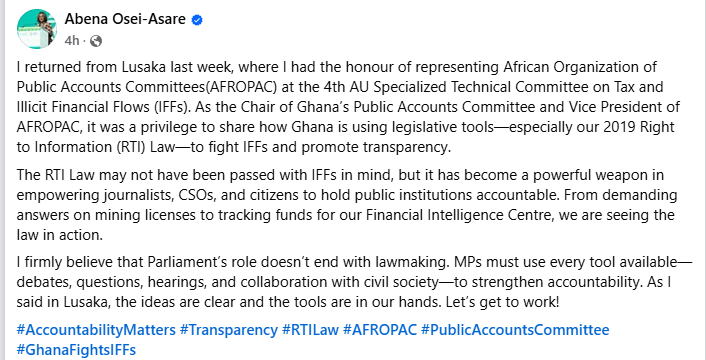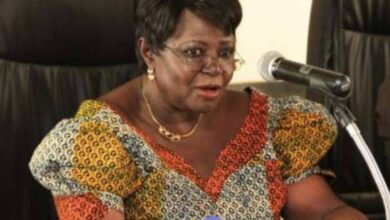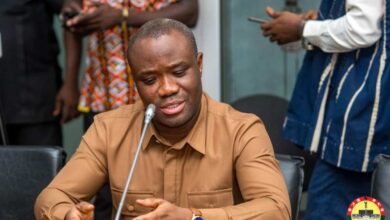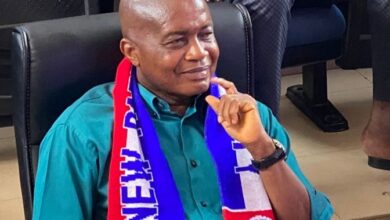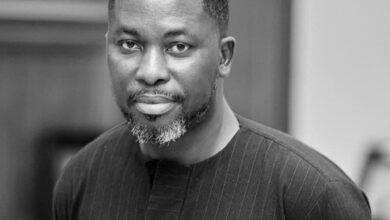Let’s get to work – Abena Osei-Asare champions RTI law in battle against IFFs
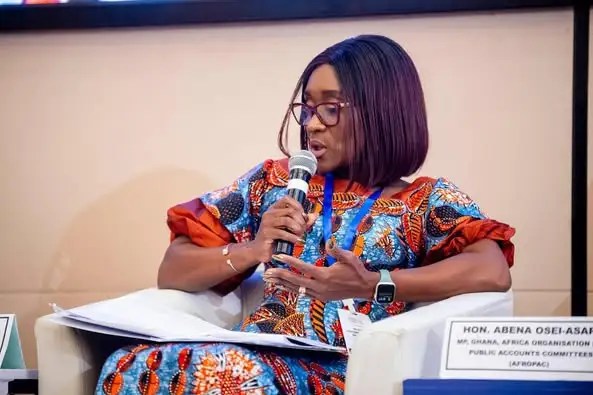
Ghana’s Right to Information (RTI) Law, though originally not crafted to tackle illicit financial flows (IFFs), is proving to be an effective weapon in promoting accountability and transparency, according to Abena Osei-Asare, Vice President of the African Organization of Public Accounts Committees (AFROPAC) and Chair of Ghana’s Public Accounts Committee.
In a recent Facebook post, she recounted her return from Lusaka, Zambia, where she represented AFROPAC at the 4th African Union Specialized Technical Committee on Tax and Illicit Financial Flows.
The forum brought together African leaders and institutions working to curb the drain of financial resources from the continent.
“I returned from Lusaka last week, where I had the honour of representing African Organization of Public Accounts Committees (AFROPAC) at the 4th AU Specialized Technical Committee on Tax and Illicit Financial Flows (IFFs).
As the Chair of Ghana’s Public Accounts Committee and Vice President of AFROPAC, it was a privilege to share how Ghana is using legislative tools—especially our 2019 Right to Information (RTI) Law—to fight IFFs and promote transparency,” she wrote.
Osei-Asare explained that while the RTI Law was not specifically designed to address illicit finance, it is increasingly being used by journalists, civil society organisations, and concerned citizens to demand answers from public institutions.
“The RTI Law may not have been passed with IFFs in mind, but it has become a powerful weapon in empowering journalists, CSOs, and citizens to hold public institutions accountable. From demanding answers on mining licenses to tracking funds for our Financial Intelligence Centre, we are seeing the law in action,” she stated.
She further stressed that Parliament’s responsibility goes beyond enacting laws. According to her, Members of Parliament must fully leverage tools such as debates, hearings, and public engagement to advance transparency and fight corruption.
“I firmly believe that Parliament’s role doesn’t end with lawmaking. MPs must use every tool available—debates, questions, hearings, and collaboration with civil society—to strengthen accountability. As I said in Lusaka, the ideas are clear and the tools are in our hands. Let’s get to work,” she concluded.
